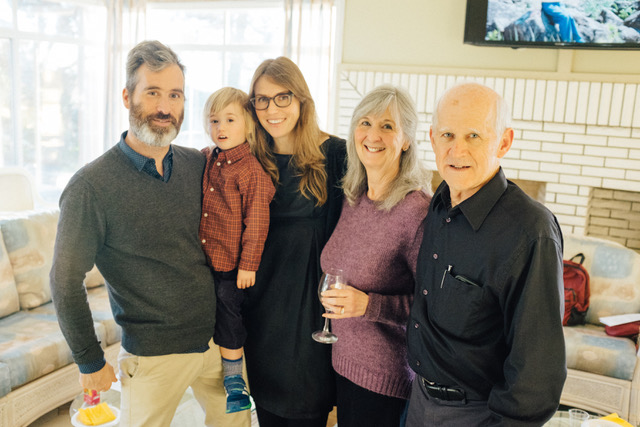- Tell us about yourself: My name is Robert Wall. I earned an MA of Arts in Administration, Curriculum and Instruction in 1994.
- What are you doing now?: ? I am retired from teaching. This was after 36 years in in the classroom and for 22 of those years I was a Vice-Principal. After that I was seminar leader and student teacher supervisor for eight more years at UVic (University of Victoria). I presently work on set construction for a theatre group, Peninsula Player, in Victoria, BC, and playing with my two grandsons.
- Why did you choose a program in the School of Education at Gonzaga? My neighbour, Dr. Joe Kess, head of the Linguistics Department at UVic, recommended it highly. Kess was a graduate of Georgetown University and knew that Gonzaga had a positive affiliation with it. He felt that there would be very positive and supportive feel to Gonzaga’s Education program as well.
- What influenced you the most during your time at Gonzaga? This is a difficult question. I believe I model the personal qualities that a school community should expect from an individual. I always wished that I could do more and always strived for that. The following people offered realistic and innovative new teaching models and ideas that I was able to merge right away as the MA program progressed as well as after the program was completed: Matt Cadman, Dr. Jon Evavold, Dr. Monica Schmidt, Dr. Dick Sovde and Dr. Deborah Nieding. They were all great role models!
- What was your greatest lesson learned at Gonzaga? I had been called an “Educator,” “Master Teacher,” and “Idea Man” by Principal reports in the nine schools I had worked. Gonzaga gave me the feeling from, ‘I think I can’ to a definite ‘Yes, I can improve my teaching and administration skills for my school communities.’
- What is the most rewarding aspect of working in your field? Most challenging? I was always a ‘Sunday night pacer’ as I planned for the next week to come. I always found that if you planned well you could almost always bring fun, new ideas and enjoyment for the students, staff and school community. Sometimes that required change or a new way of doing something. So, for me change was always the ‘challenge.’ That was one of the reasons I asked for nine school transfers so that I could challenge myself. Each school was like starting teaching all over only in a different school environment.
- What critical issues do you see that need to be addressed in your field? ? I like being with kids and find a school ghost-like when the hallways are empty without them there. Like Victoria, many cities do not have a large percentage of students by population. I think it is extremely important to promote stronger understanding of the amazing talent younger people in schools are to the general public, sometimes the school’s parent communities, business, the press and government at all levels.
- What advice do you have for future education professionals? To best answer this question I am going to use some quotes from my farewell retirement speech. “To me a school, my definition, has always been an ‘Information, Intergenerational, Transfer, Environment’. Or, I would say, a school is a building of four walls, with tomorrow inside. A school is more of a spirit than a physical structure… Young hope walks its corridors. Young dreams climb its stairways. Young ambitions fill its classrooms. It’s youngest building in the world. It’s a school my favourite place.” So, being an educator is hard work, challenging, and you need to work as hard as you can every year for your students. And if you do, you will find teaching to be one of the most rewarding, enjoyable and important jobs in the world. As Cicero wrote, “What noble employment, or more valuable to the state, than that of instructing the younger generation.”

Leave a Reply